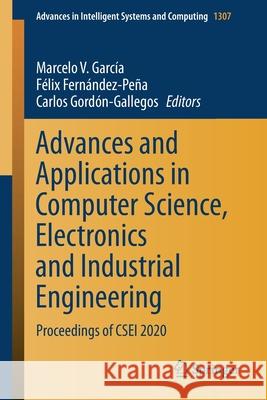Advances and Applications in Computer Science, Electronics and Industrial Engineering: Proceedings of Csei 2020 » książka
topmenu
Advances and Applications in Computer Science, Electronics and Industrial Engineering: Proceedings of Csei 2020
ISBN-13: 9789813345645 / Angielski / Miękka / 2021 / 300 str.
Advances and Applications in Computer Science, Electronics and Industrial Engineering: Proceedings of Csei 2020
ISBN-13: 9789813345645 / Angielski / Miękka / 2021 / 300 str.
cena 603,81
(netto: 575,06 VAT: 5%)
Najniższa cena z 30 dni: 578,30
(netto: 575,06 VAT: 5%)
Najniższa cena z 30 dni: 578,30
Termin realizacji zamówienia:
ok. 22 dni roboczych.
ok. 22 dni roboczych.
Darmowa dostawa!
Kategorie:
Kategorie BISAC:
Wydawca:
Springer
Seria wydawnicza:
Język:
Angielski
ISBN-13:
9789813345645
Rok wydania:
2021
Wydanie:
2021
Numer serii:
000453356
Ilość stron:
300
Waga:
0.44 kg
Wymiary:
23.39 x 15.6 x 1.68
Oprawa:
Miękka
Wolumenów:
01
Dodatkowe informacje:
Wydanie ilustrowane











